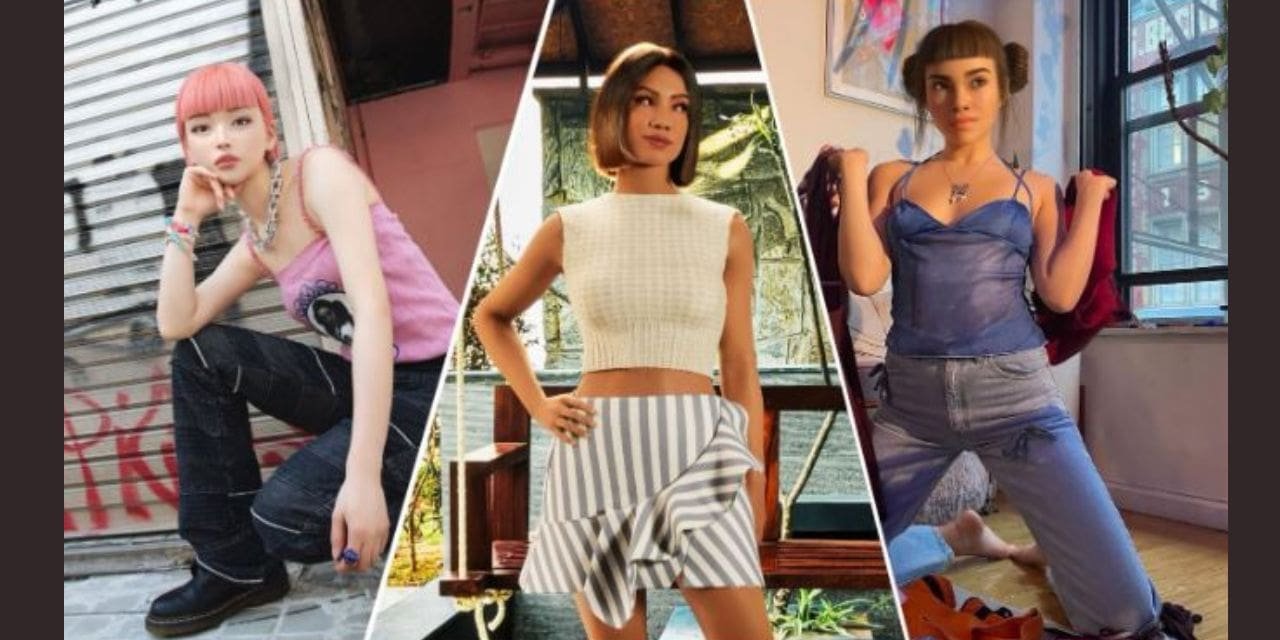-By Ankita Dutta
Summary
This article discusses the rise of AI influencers in the fashion industry. AI influencers are virtual models created using artificial intelligence, and they are used by brands to promote products on social media. The advantages of AI influencers include their constant availability, brand control, and cost-effectiveness. However, challenges include relatability and perceptions of authenticity. While the use of AI influencers is still in its early stages, it has the potential to transform fashion marketing as the technology continues to advance.
The fashion industry is constantly evolving, and one of the most significant changes in recent years has been the rise of AI influencers. AI influencers are virtual models who are created to resemble and behave like actual individuals. They are often used by brands to promote their products on social media. Artificial intelligence is utilized to generate these virtual influencers.
AI influencers are having a major impact on the fashion marketing landscape. They offer a number of advantages over traditional influencers, including:
They are always available
AI influencers don’t need to sleep or take breaks, so they can always be on hand to create content and interact with fans.
They are perfectly curated
AI influencers can be designed to look and act however the brand wants them to, which gives brands a high degree of control over their marketing campaigns.
They are cost-effective
AI influencers don’t require the same level of pay or resources as traditional influencers, which can save brands a significant amount of money.
As a result of these advantages, AI influencers are becoming increasingly popular with fashion brands. A recent study by PwC found that 70% of fashion brands plan to use AI influencers in their marketing campaigns by 2025.
Of course, there are also some challenges associated with using AI influencers. One concern is that they may not be as relatable to consumers as traditional influencers. Additionally, some people may view AI influencers as being “fake” or “unauthentic.” It can be difficult to create AI influencers that are visually appealing and there is still a lack of understanding about how AI influencers will impact the fashion industry.
Despite these challenges, the potential benefits of using AI influencers are significant. As the technology continues to develop, AI influencers are likely to become even more popular with fashion brands.
Here are some examples of AI influencers in the fashion industry:
Lil Miquela: Lil Miquela is one of the most popular AI influencers in the world. With a following of more than 3 million on Instagram, she has collaborated with renowned fashion labels such as Prada and Calvin Klein.
Imma: Imma is a virtual influencer created by ModelingCafe Inc. in Tokyo, Japan. She is known for her bubble gum pink bob and her ultra-fine fashion. Imma has over 400,000 followers on Instagram and has worked with brands such as Dior, Porsche Japan, and Valentino.
Maya: Maya is a virtual fashion influencer created by Myntra, an Indian e-commerce platform. She was launched in May 2023, ahead of Myntra’s biannual End of Reason Sale (EORS). Maya is an AI-powered model who is designed to appeal to Gen Z shoppers. Maya’s Instagram profile, @maya_unlimited, has over 177,000+ followers.
These are just a few examples of the many AI influencers that are active in the fashion industry. The use of AI influencers in fashion marketing is still in its early stages. However, there is a lot of potential for this technology to revolutionize the way that fashion brands market their products. As AI technology continues to develop, we can expect to see even more innovative and creative ways to use AI influencers in fashion marketing.

